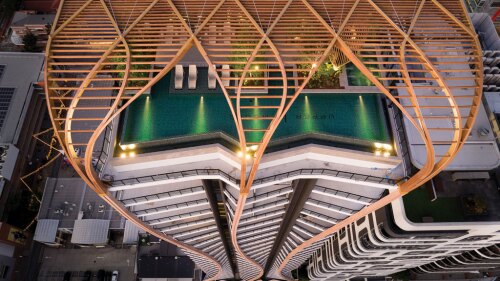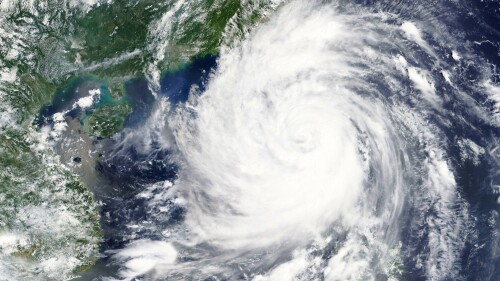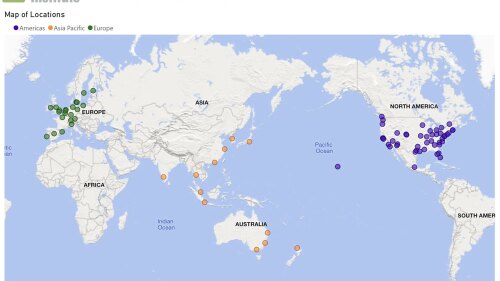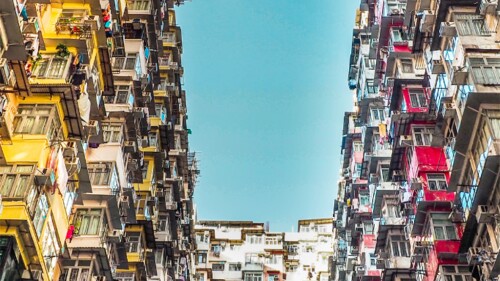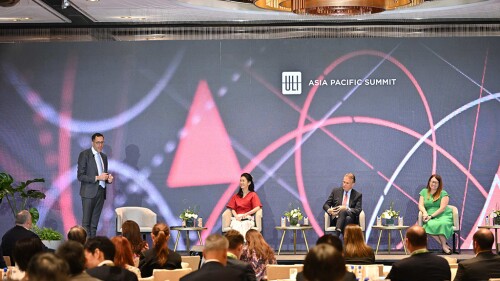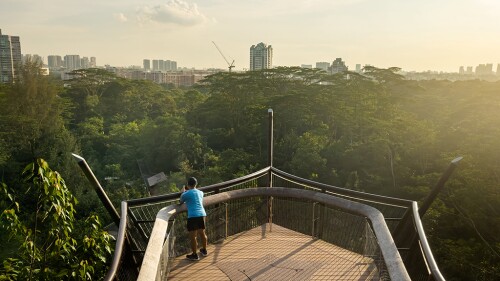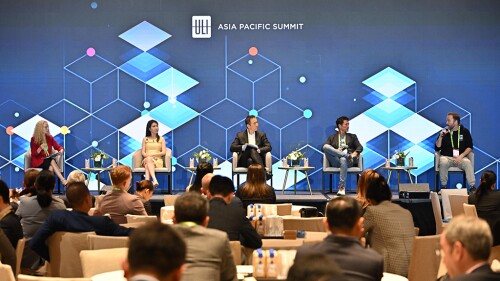ULI Asia Pacific
Home to 7.5 million people and constrained by surrounding mountains and sea, Hong Kong has evolved into one of the world’s most vertically and densely developed cities. These pressures have driven innovative approaches to transit-oriented development, public housing, and open space. The city served as an ideal setting for Cohort 8’s closing forum by offering both inspiration and critical lessons for cities grappling with similar challenges.
Singapore real estate veterans at a Women’s Leadership Initiative (WLI) event last month suggested that finding your own voice, challenging yourself, and not over-planning can help women in the industry to progress in interesting and worthwhile careers.
The 2026 Emerging Trends in Real Estate® Asia Pacific report, published jointly by ULI and PwC found a mood of cautious optimism among real estate professionals; however, respondents described considerable disparities in markets and sectors across the region. Tokyo was ranked as the top city for investment in the Emerging Trends survey, top of the table for the third consecutive year, followed by Singapore, Sydney, Osaka, and Seoul.
Across the Brisbane River from Brisbane, Australia’s central business district, the 33-story Upper House residential tower stands out in the city’s skyline with its “dancing balconies” and curving timber ribbons inspired by the prominent roots of Queensland’s native Moreton Bay fig tree.
In September 2023, Hong Kong was hit by its heaviest rainfall on record—nearly 6.3 inches (160 mm) in a single hour. Link Asset Management’s Temple Mall North, like many other buildings, suffered severe flood damage. In response, the company invested in detachable flood barriers and Internet-of-Things (IoT) sensors to mitigate future risk. For Link’s bottom line, this resilience investment translated into an 11.7 percent reduction in insurance premiums.
Despite geopolitical headwinds, green building regulations continue to gain momentum among local authorities. Many cities have moved beyond reporting requirements to demand practical, asset-level action. Numerous jurisdictions have introduced requirements on net-zero carbon and energy efficiency in buildings, fossil fuel-free heating, embodied carbon, electric vehicle (EV) charging facilities, and climate adaptation measures.
ULI Asia Pacific has released its 2025 Asia Pacific Home Attainability Index, revealing persistent challenges to affordable or accessible housing across the region. The fourth edition of the report assesses 51 market segments across 41 major cities.
The closing panel at the 2025 ULI Asia Pacific Summit brought together real estate players from a wide range of geographies and capital markets roles. Audience polling at the start of the discussion revealed that Summit attendees believe the world will become more multipolar after a generation of American exceptionalism, with some audience members feeling that the U.S. will fall behind Asia or Europe.
Setting the tone for this year’s ULI Asia Pacific Summit, moderator Lola Woetzel, senior partner emerita at McKinsey & Company, presented a panel of industry leaders with the perennial question: “How does it feel to live here?” The discussion brought into sharp focus the complex realities shaping housing across the region.
Once the site of an abandoned quarry, Singapore’s Rifle Range Nature Park now serves as a buffer zone protecting one of the island nation’s last primary rainforests, Bukit Timah Nature Reserve, from encroaching development and human activity. Located to the reserve’s south, Rifle Range is Singapore’s first net-positive energy nature park, harvesting more energy than its annual operational requirements.
At the 2025 ULI Asia Pacific Summit, a distinguished panel of industry leaders convened to dissect what the rise of artificial intelligence means for the sector and how organizations can harness its potential. Their debate spanned the frenetic growth of data centers, the journey of AI adoption, and seismic shifts afoot for the built environment and the workforce.
At the 2025 ULI Asia Pacific Summit—May 26–29, in Hong Kong—a panel of Asian economic and geopolitical experts addressed one of today’s most immediate global concerns: the implications of U.S.–China economic decoupling and the broader geopolitical shifts reshaping global trade and investment.




